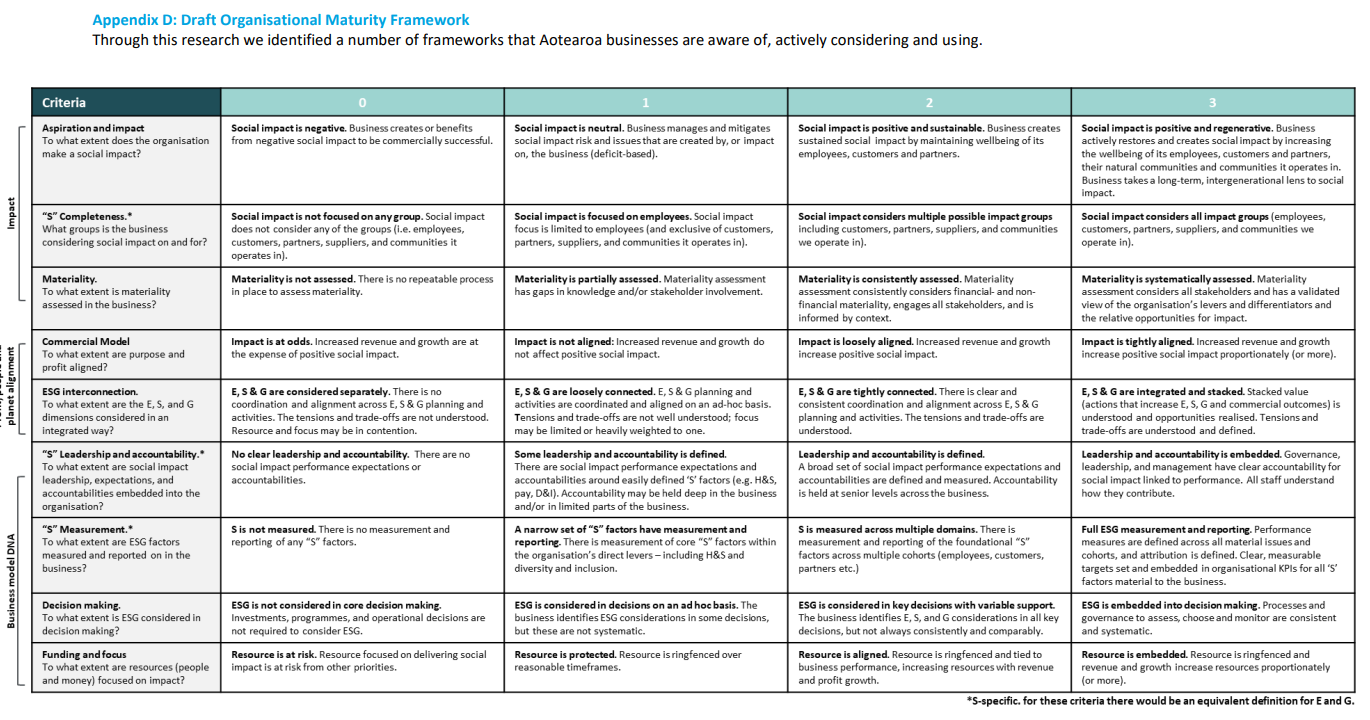Strengthening the ‘S’ in ESG
Social sustainability or the ‘S’ in ESG is changing rapidly. The landscape is complex. Emerging regulations are broadening business responsibilities, while stakeholders are intensifying their scrutiny of business’ social performance.
Yet, international research and anecdotal evidence suggest the ‘S’ in ESG is lagging behind the increasingly structured approaches of the ‘E’ and the ‘G’. Furthermore, despite growing leadership by individual businesses, action remains relatively siloed and issue-specific, with impact falling short of ambition and what is required for systemic change.
To support members to be leaders in social sustainability performance and impact, SBC commissioned research to analyse the social sustainability landscape in Aotearoa NZ, detail the reasons why the ‘S’ is lagging, and then set out recommendations to strengthen the ‘S’. The flagship report ‘Thriving People: Strengthening the ‘S’ in ESG for Aotearoa businesses’, delivered by Deloitte with support from 10 SBC member sponsors, is designed to:
- set out the basis for defining social sustainability through the lens of te ao Māori, centred on three outcomes of social impact;
- identify the unique role SBC can play to ensure members are equipped to consider and lead in this space; and
- outline practical tools and actions members can implement to improve positive social impact, including a maturity assessment matrix (see image below)
“Congratulations for pushing this forward and creating the next sustainability frontier for New Zealand corporates”
– David Benattar (Chief Sustainability Officer at The Warehouse Group)
How do we strengthen the ‘S’ in ESG?
In response to the insights gained from SBC members, this report concludes that business has an exciting role to play in setting an aspiration to progress social equity, using its existing strength in the area of employment, and by taking new action around community investment and impact, and supply chains. As businesses are still new to the ‘S’, the report provides guidance to help them understand what capabilities they need and where they should be directing their focus to create systemic change.
Here are the recommended actions from the report for SBC and its members.
Recommended actions for SBC members
|
Recommended actions for SBC
|
Get involved
Read the full report here, or check out SBC’s summary document here.
“Wherever you are in your leadership journey, you can use this practical tool to understand your current organisational maturity and create an internal benchmark to track action against, as well as to start conversations with internal stakeholders on building capability, accountability and transparency.
– Robert Perry (Manager Thriving People)

